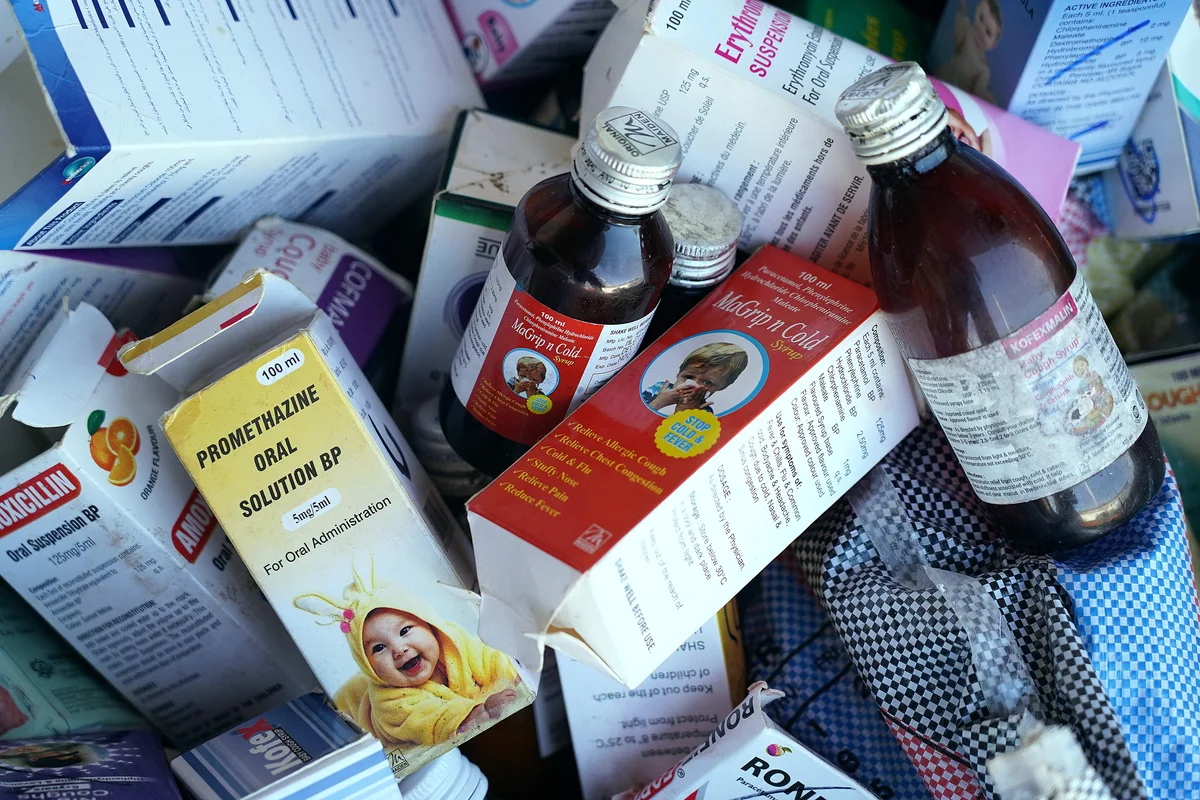By Namita Singh
Copyright independent

The WHO has asked India for urgent reassurances after at least 20 children died from consuming contaminated cough syrup.
All 20 of the deaths have taken place in the central state of Madhya Pradesh, and were confirmed by the deputy chief minister Rajendra Shukla on Tuesday after he visited a hospital treating the children. “Two of them died in the past 24 hours,” he said.
This is only the latest incident of child deaths from cough syrup in India. Toxins found in Indian-made cough syrups have killed at least 141 children in Gambia, Uzbekistan and Cameroon since 2022, and another 12 children in an incident in India in 2019, damaging the country’s image as one of the world’s biggest producers of pharmaceuticals.
The latest victims had reportedly been suffering from fever and cold before taking a cough syrup called Coldrif, after which they experienced vomiting and difficulty urinating. The first death was reported on 2 September.
The syrup was produced by Sresan Pharmaceuticals, based in Kancheepuram district of Tamil Nadu, in southern India.
Authorities have since banned the formulation in eight Indian states and territories – Tamil Nadu, Madhya Pradesh, Kerala, Karnataka, Punjab, Himachal Pradesh, Uttar Pradesh and Puducherry.
The WHO told Reuters it was seeking clarification from the Indian government on whether the cough syrup involved in the deaths has been exported to other countries.
The UN’s health agency, which advises against the use of all cold syrups for young children, suggested it could issue a global warning over Coldrif depending on the Indian government’s response.
Mr Shukla said action had been taken by the state government against the manufacturer, the prescribing doctor and Food and Drugs Administration (FDA) officials for alleged negligence.
Around 600 bottles of the syrup were traced to Chhindwara district, of which 443 have been seized. Local healthcare providers have been instructed to conduct door-to-door checks to recover any remaining bottles.
Sresan Pharmaceuticals has not yet issued a public statement, did not respond to queries from Reuters and could not immediately be reached for comment by The Independent.
Madhya Pradesh police have formed a Special Investigation Team (SIT) to probe the deaths, while several state officials responsible for compliance have been suspended.
Tests by Tamil Nadu’s drug control department on 2 October found that Coldrif samples were “not of standard quality.”
Further analysis in Madhya Pradesh revealed that one sample contained as much as 48.6 per cent diethylene glycol, a toxic industrial solvent. The permissible impurity limit for diethylene glycol is 0.1 per cent, but drug experts say it is unsafe even in trace amounts and should never be present in medicines intended for human consumption.
Two other syrups – Relife and Respifresh TR – were also found contaminated with diethylene glycol in Madhya Pradesh this week and labelled as “not of standard quality”, the Madhya Pradesh drug controller said, according to news outlet Scroll.
The Independent has contacted Shape Pharma Private Limited, Leolife Sciences Private Limited and Rednex Pharmaceuticals Limited, the producers and suppliers of Relife and Respifresh TR, for comment on the findings.
Diethylene glycol is a chemical compound used in industrial products such as antifreeze, paints, brake fluids, and plastics.
It is not supposed to be used for medicines and sometimes contaminates pharmaceutical ingredients like glycerine, often due to poor oversight or suppliers using cheap industrial-grade material.
Diethylene glycol or ethylene glycol toxins were also allegedly found in cough syrups in earlier fatal incidents involving Indian producers. In The Gambia alone, 70 children died in 2022, from the consumption of four cough syrups manufactured in India.
Laboratory analysis of 23 medication samples conducted by the WHO at the time found that four products from Maiden Pharmaceuticals Limited (Haryana, India) contained diethylene glycol and ethylene glycol.
Based on records from The Gambia’s Medicines Control Agency, all medications that tested positive for the toxins were imported into The Gambia on 21 June 2022, shortly before the occurrence of the first deaths.
Both Maiden Pharmaceuticals and the Indian government denied the allegation with the country claiming in December that year that the syrups complied with quality standards when tested domestically.